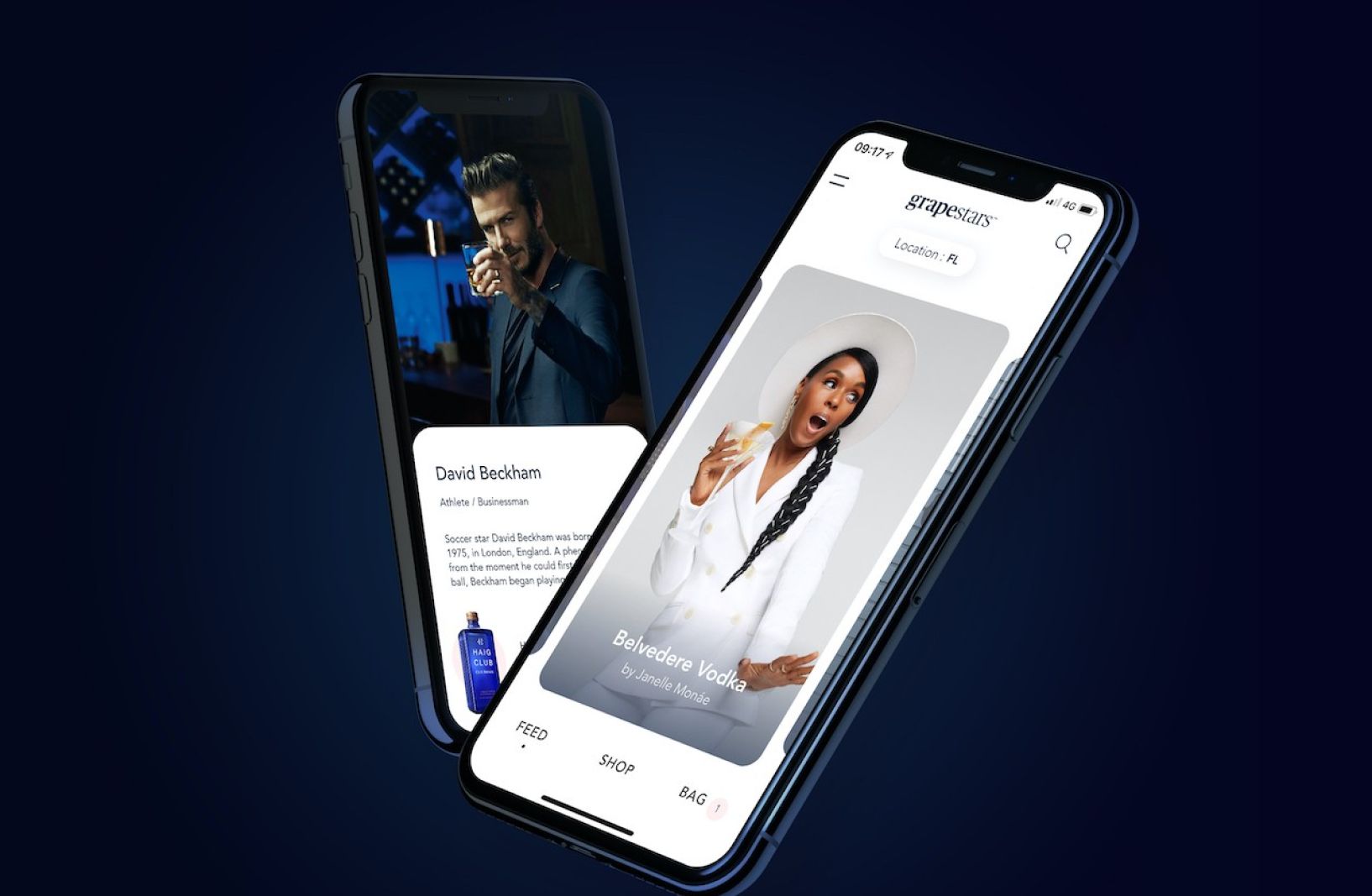The proliferation of smartphones has led to an ever-expanding fan base in the sports business. The sports sector is following a trend as a result of the audience’s reliance on mobile apps for sports news, live sports streaming, fantasy gaming, and other purposes. Sports apps are abundant in the Play Store and App Store. Entrepreneurs consistently demonstrate a willingness to learn about the newest trends in apps, the best concepts, and essential features to incorporate into their sports applications in order to draw in sports fans. Startups are always coming up with fresh concepts to create a useful app that purposefully differentiates itself from the competition.
The following article will help you comprehend the most significant sports app trends, the best concepts for sports app development, and the essential elements that your sports mobile app needs to have in order to achieve rapid growth and success in the sports market.
Let’s examine the data surrounding sports fans’ use of sports applications before delving further into mobile app development for the sports sector.
Data in the Sports App Industry
Users dedicate a substantial chunk of their daily time—roughly an hour—to the sports app, which is in addition to their regular activities (Source: Think with Google).
Statista research indicates that 31% of consumers in the 18–24 age range streamed live sports material using mobile apps. 30% of users between the ages of 25 and 34 used apps to watch live sports content on their cell phones. Additionally, 27% of users in the 35–44 age range used sports apps to keep up with live sports streaming. It implies that if you go for the sports sector, you’re going after a sizable 18–43 audience base in the end.
By 2022, the average revenue is expected to reach US$3,959 million, demonstrating the enormous income growth that sports apps can expect.
Based on the aforementioned data, focusing on sports app development in 2022 is definitely a wise decision due to steady growth and a promising future. In order to create the greatest sports mobile app, you need to know about the following trends and app concepts that are currently in the sports app development business or include them in your app.
Current Sports Industry Trends and App Ideas
The following trends will help the general public and businesses alike understand what the sports mobile app market needs. You may have a better understanding of the sports market by reading these trends, and you can use some or all of them to create an amazing sports app for your users.
Here are a few of the most recent trends that sports apps are focusing on to give sports fans the greatest possible experience.
Gamification of Applications
Every business wants to include the popular phrase “gamification” in their mobile apps. It can be broadly described as a collection of components that encourage users to play games on the mobile app for extended periods of time. Point scoring, rivalry with other players, wagering, voicing opinions about particular activities, and other motivating aspects are some examples of gaming activities. Another way to gamify apps is to include social features that allow users to interact with others who share their interests. During the IPL, cricket betting functions are already very popular, particularly on Android devices. It is essential to conduct business research and select the best Android app development company when gamifying your application.
Using Social Media to Promote Social Engagement
In addition to being avid sports fans, every one of us has a favorite social media platform that we use on a regular basis. Sports enthusiasts undoubtedly experience the same thing, and they like using social media to share their activities with their connections. Enthusiastic sports fans value the ability to post updates in real-time straight to their social media accounts. One trend that allows users to rapidly communicate their activities from the sports app to their social media profiles is live-tweeting and uploading Q&A straight to Instagram.
Arena Experiences a Homely Feeling with VR and AR.
In the sports sector, augmented reality and virtual reality are creating new trends. While some users like watching their favorite sports matches live in stadiums, others are unable to participate in the action. Users can enjoy sports matches as if they were sitting in stadiums with the virtual reality gear. Users of sports applications are requesting more immersive VR experiences, which is why it’s becoming popular. Similar to this, 3D systems like Hawk-eye, which are utilized in soccer, tennis, cricket, and other sports, offer incredible experiences. What if people could use augmented reality (AR) on their smartphones to see Hawkeye right in front of them?
Improved Apps through ML and AI
Apps are becoming more sophisticated than ever thanks to machine learning. Users of your sports app will receive an artificially intelligent experience when you include machine learning algorithms into it. By analyzing user behavior, your app may provide tailored content. Users who enjoy reading sports news can find it on news apps, and those who use broadcasting apps can find interesting highlights or live matches to watch that will pique their interest. Artificial intelligence is also used in sports app development to help users answer often requested questions by presuming to know the best answers without requiring human assistance or involvement.
Top Picks for Your Upcoming Sports App
After studying the current sports business trends, it’s a good idea to look into the best app concepts to use for your next sports app.
App for Fantasy Sports
Not every participant engages in physical sports. In 2023, fantasy sports applications are promoting them since planning strategies is a part of playing sports. Using fantasy apps, users may exhibit their sports strategy and prediction quality by building their teams and placing bets on the chosen players. In addition to receiving a hefty payout, the champions take pride of place on the leaderboards. Cricket betting apps have increased significantly since the IPL 2022, and people are using Dream 11 and other applications more frequently to showcase their cricket prowess. To ensure that your budget is both effective and efficient, pay close attention to the development costs of fantasy sports apps.
App for Sports Streaming
There is a lengthy history of broadcasting in the sports sector. From radio to television, and now straight to our smartphones, we can watch and enjoy our favorite sports. You might think about creating an app that offers real-time broadcasting of events occurring globally. You can also incorporate features like match highlights, in-app chats, and interesting push alerts to entice users to download your e-sports app.
App for Online Ticket Purchase
It’s not necessary to have graphical content all the time, such as live match streaming. An app that allows users to purchase tickets for well-known stadiums online can be made. Additionally, you can develop an all-in-one app for reserving tickets to forthcoming sporting events that cater to a variety of sports, like badminton, football, cricket, tennis, and more.
Coaches’ Management Application
One of the main advantages of the internet is communication, and using applications to connect with people while on the road is particularly convenient. Sports coaches work with players, and they have to oversee their training players all the time. In the sports sector, your management tool might give coaches the ability to oversee athletes directly from their cell phones. Features like keeping track of players’ attendance and performances can be included in your app. Additionally, you can offer the players the choice to get vital updates directly from coaches, acting as a messenger or channel of notification.
The Sports News Application
Enthusiasts of sports tend to favor reading or viewing news about their favorite teams over engaging in professional sports activities. You may receive quick news from the sports business in front of a busy audience using your app. To ensure that your app doesn’t lack direction, it is a great idea to focus on most sports. Lastly, provide people the ability to add their thoughts and join well-liked debates by commenting on their posts.
E-business in Sports
Those who enjoy playing cricket actively look for cricket equipment to purchase. Why not create a sports app that enables enthusiasts to purchase their preferred gear? You may market any piece of equipment related to most sports, whether it’s a football keeper pad, a cricket ball, a rugby ball, or a tennis outfit. The e-commerce sector is already experiencing growth as new businesses enter the market to make money. It’s best to move quickly and seize the opportunity because targeting the sports industry for e-commerce is a fantastic and uncommon idea.
When developing your app, you can choose from a wide range of domains by using the sports app ideas listed above. With this knowledge, though, you have to wonder what elements a sports app needs to have in order to forecast the next 2024 trends. Let’s examine the features that your app has to focus on in order to give sports fans the greatest possible experience.
Important Elements of an Outstanding User Experience in Sports App Development
While all of the characteristics listed below make using an app more enjoyable, sports app creation uses them all equally.
The entire app has a sports feel thanks to UI/UX.
Delivering engagement on your app is mostly dependent on the user interface and design. Users will quickly hit the uninstall button and hunt for another app if your program has a poor design. If you want to target the sports business, your app’s design must have a sports vibe. It becomes crucial to employ colors that energize consumers, which differ depending on the sport. Additionally, the app displays background graphics that need to be connected to the sports they are studying. The social engagement component needs to resemble a social media app where users can establish accounts, publish, and interact with other users through lively chat and animations. The social media integration should also have eye-catching social handle icons.
Gateway for payments
One of the essential features that most of the apps have is a payment gateway. And if your goal is to create an e-commerce sports app where users must purchase or sell sporting goods, then that feature becomes very necessary. Provide users with a seamless, ready-made solution to utilize when processing payments. To provide a smooth user experience, your app must also offer a number of payment options, including debit and credit cards.
Using Streaming Apps in Offline Mode
Sports streaming applications are popular and have a large user base since most sports fans watch their favorite games straight on their smartphones. Therefore, adding an offline functionality to your software gives users the greatest possible experience and improves user reviews. Allow viewers to download their favorite highlights or live shows for subsequent viewing when they have some spare time from their hectic schedules.
A Smooth Experience with News Feed and Chat
A person can spend hours perusing and interacting with new items on their newsfeed. You will lose users if your news feed has issues and is erratic. Therefore, gives users a seamless, error-free experience with their news stream. Lastly, give the chatbot the utmost significance. Include extras like stickers and GIFs to provide users with a more engaging experience. Additionally, chatbots using natural language processing are drawing entrepreneurs to create apps similar to chatbots.
Address Server Overload in Apps for Fantasy Sports
Unexpected surges in traffic can impact servers, leading to the occasional collapse of your fantasy sports app. Make sure the company developing your Fantasy Sports app development solutions has strong server overload algorithms ready to manage any problems.
Intelligent chatbots provide immediate chat support for important inquiries
Even though intelligent chatbots can answer the majority of questions, it’s crucial to have a rapid avenue for users to contact a customer executive if they have urgent questions. With the introduction of mobile apps, the conventional method of submitting tickets or emails to the organization has been rendered obsolete. Therefore, make sure that your sports app offers a rapid chat feature to address your important users’ pressing questions.
Conclusion
That’s all the article has to give, including all the essential information regarding sports app development. The article’s facts will assist you in comprehending the encouraging growth rate that sports app development is expected to offer. You may also get a sense of the new technology and expectations that the sports business is constantly working to meet by looking at the trends. You will have a wide selection of possibilities for sports app development ideas from the sports app ideas in this article. You can choose the sports app concept that best suits your interests. Additionally, you will find the essential functions to be of great assistance when developing a sports app.
You can request that the most crucial features be integrated and that typical faults like server overload be cleverly fixed by your sports app development company. We are pleased to offer you our industry-leading sports app development service to jumpstart your concept now that you are fully aware of the issue of sports app development. With the help of a bespoke sports app development business, turn your concept into a sports application and start down the road to brand recognition.




